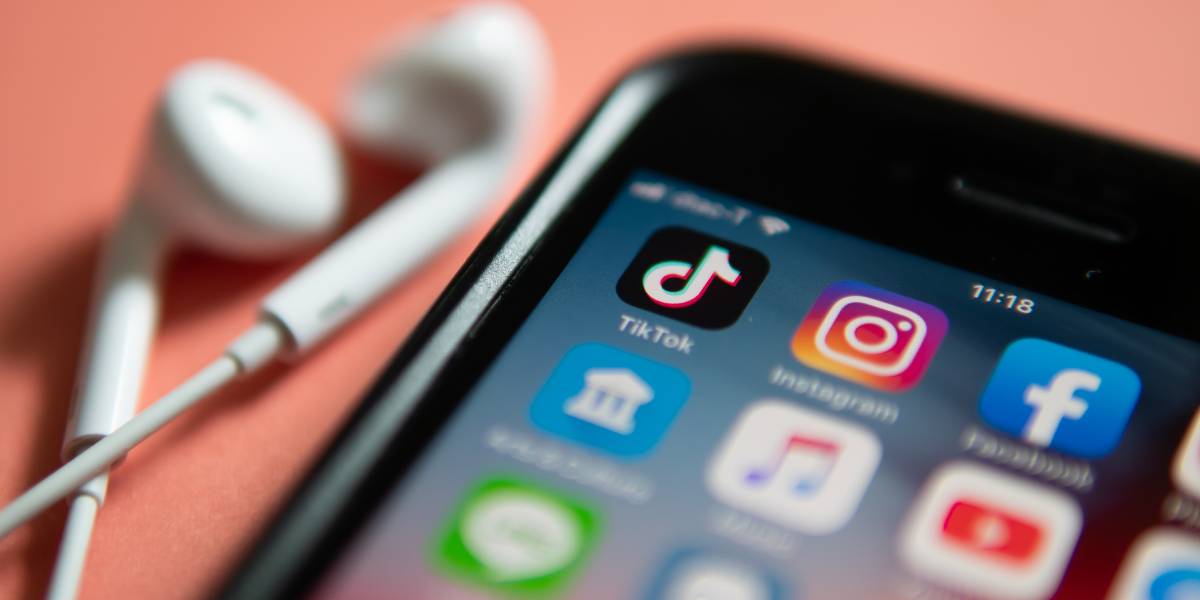Eating an orange in the shower to tackle anxiety and how trauma can be ‘healed’ within an hour are just some of the misleading tips being shared on more than 50% of the most popular TikTok videos offering mental health guidance.
An investigation by the Guardian newspaper saw the top 100 trending videos about mental wellbeing analysed by psychologists, psychiatrists and academic experts.
They concluded that more than half contained misleading or false claims, with one expert saying that the platform is spreading misinformation “by suggesting that there are secret universal tips and truths that may actually make a viewer feel even worse, like a failure, when these tips don’t simply cure”.
Influencers were found to misuse therapeutic language, offer ‘quick fix’ answers and share false claims in posts using the hashtag, #mentalhealthtips.
- Staying social in later life may protect against dementia
- Social media influencers raking in thousands for promoting weight loss jabs
- Poor mental health triggered by alcohol and social media
Another concern for experts was the tendency for influencers to suggest that normal emotional experiences or reactions could be a sign of borderline personality disorder or abuse.
The specialists also urged caution around claims that supplements such as saffron, magnesium glycinate and holy basil could help to reduce anxiety, saying there is limited evidence these can work.
The videos covered topics including trauma, neurodivergence, anxiety, depression and severe mental illness, with 52 out of the 100 clips found to contain misinformation, and many more sharing vague or unhelpful advice.
The findings from the investigation have been described as “damning” and “concerning” by MPs and mental health experts, with calls for better online regulation to protect the public from misinformation.
David Okai, a consultant neuropsychiatrist and researcher in psychological medicine at King’s College London, reviewed the videos which purported to offer advice on anxiety and depression.
He highlighted the misuse of therapeutic language, such as interchanging the words ‘wellbeing’, ‘anxiety’ and ‘mental disorder’, which he said “can lead to confusion about what mental illness actually entails”.
- Prediabetes more common among adolescents with poor social determinants of health
- Race and social vulnerability are risk factors for worse glycaemic control
- Cutting social media use to 30 minutes a day reduces anxiety and depression
Dr Okai also warned that posts based on narrow personal experience may not be universally applicable and pointed out that “short-form, attention-grabbing soundbites can sometimes overshadow the more nuanced realities of qualified therapeutic work”.
Amber Johnston, a British Psychological Society-accredited psychologist, reviewed the trauma videos. She said the posts over-generalised the subject while the complexity of post-traumatic stress disorder was sidelined.
She commented: “Each video is guilty of suggesting that everyone has the same experience of PTSD with similar symptoms that can easily be explained in a 30-second reel. The truth is that PTSD and trauma symptoms are highly individual experiences that cannot be compared across people and require a trained and accredited clinician to help a person understand the individual nature of their distress.”
A government spokesperson said through the Online Safety Act, ministers were “taking action to reduce the impact of harmful mis- and disinformation content online.”




